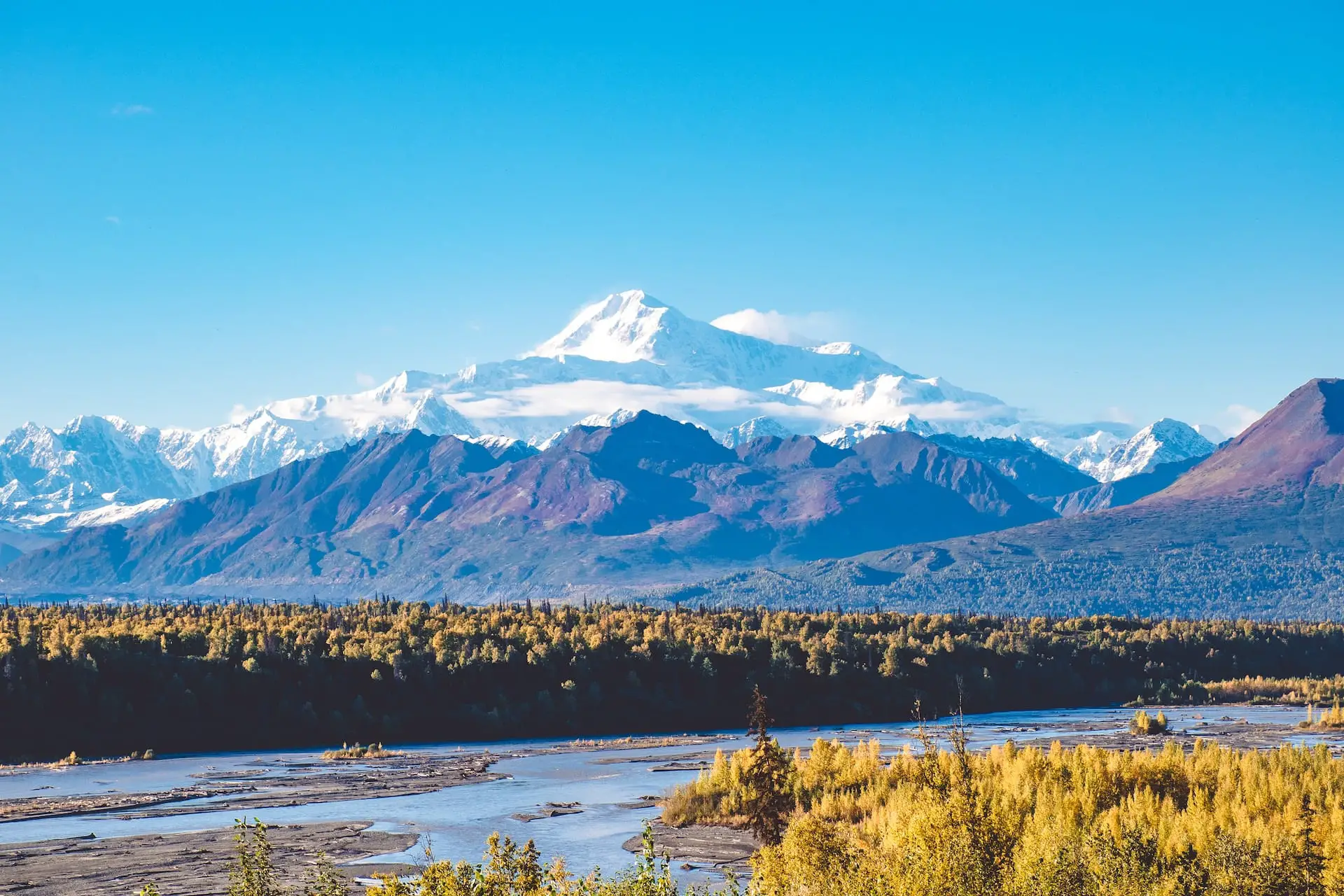In the vast expanse of Alaska’s Last Frontier, the Northwest Arctic Borough stands as a testament to rugged individualism and a close connection with nature. For those seeking a life off the grid in this remote region, a unique set of challenges and opportunities awaits. In this comprehensive guide, we’ll explore the legal considerations, county-specific information, and essential aspects of off-grid living, shedding light on the lives of the locals who have embraced a self-sufficient lifestyle.
If you want to live off the grid in Alaska then you will need a reliable bear spray, my personal recommendation is to use one that is effective against all types of bears Click here to check it out on Amazon.com
Legal Considerations
Before delving into the specifics of off-grid living in Northwest Arctic Borough, it’s crucial to understand the legal landscape. Zoning regulations and land use policies vary across Alaska, and Northwest Arctic Borough is no exception. Residents must be aware of land ownership rules, building codes, and any restrictions on alternative energy sources.
The borough encourages sustainable practices, but it’s essential to check with local authorities before embarking on an off-grid lifestyle. Understanding the legal framework ensures a smooth transition into a self-sufficient way of life.
Read more: Off Grid Living In Alaska ( The Last Frontier )
Communities in Northwest Arctic Borough
- Kotzebue
- Noorvik
- Kivalina
- Selawik
- Kobuk
These communities, each with its own unique charm, contribute to the cultural tapestry of the borough. Kotzebue, the largest city and the borough seat, serves as a hub for supplies and services, making it a strategic location for off-grid enthusiasts.
Read more: Off Grid Living In North Slope Borough ( Alaska )
Essential Aspects of Off-Grid Living
Food and Water
The abundance of natural resources in Northwest Arctic Borough makes it feasible for residents to rely on subsistence hunting and fishing. Local residents like Mary Johnson from Selawik emphasize the importance of traditional practices, saying, “We depend on the land and rivers for our food. It’s a way of life passed down through generations.”
Access to clean water is vital, and many residents rely on wells or collect rainwater. Communities work together to ensure a sustainable supply of food and water, fostering a sense of interdependence.
Read more: Off Grid Living In Matanuska-Susitna Borough ( Alaska )
Climate
The harsh Arctic climate poses a unique challenge for off-grid living. Long, frigid winters and short summers require careful planning. Insulating homes, using alternative heating sources such as wood stoves, and preserving food for the winter are common practices.
John Smith from Kivalina shares, “Winter is tough, but we’ve learned to adapt. It’s about preparation and community support. We help each other get through the toughest times.”
Read more: Off Grid Living In Lake and Peninsula Borough ( Alaska )
Generating Power
In a region with limited access to conventional power grids, residents of Northwest Arctic Borough often rely on alternative energy sources. Solar panels, wind turbines, and generators powered by locally sourced fuel are popular choices.
As we at offgridgrandpa.com recommend, “Understanding your energy needs and harnessing the power of nature is key to a successful off-grid experience. Embrace renewable energy sources to sustainably power your off-grid lifestyle.”
Comparisons with Neighboring Counties
While each county in Alaska has its distinct characteristics, neighboring counties such as North Slope Borough, Yukon-Koyukuk Census Area, and Nome Census Area share similarities in terms of climate and off-grid living challenges. However, Northwest Arctic Borough’s unique blend of cultures and tight-knit communities sets it apart.
Unique Considerations in Northwest Arctic Borough
Apart from the general challenges of off-grid living in Alaska, Northwest Arctic Borough presents unique considerations. The borough’s commitment to preserving traditional practices and close-knit community living shapes the off-grid lifestyle here.
Eva Adams from Noorvik expresses, “We value our traditions and the land. Living off the grid is not just about survival; it’s about preserving our way of life for future generations.”
Local Voices: Living Off the Grid
Charlie Inupiaq, Kotzebue: “Living off the grid is about self-sufficiency and resilience. We use the resources around us wisely, respecting nature. It’s a tough life, but it’s rewarding.”
Lillian Nunamiut, Kobuk: “We may be off the grid, but we’re not alone. Our community is our strength. We hunt together, fish together, and face challenges together. It’s a way of life.”
Recommendations From The Locals
Embrace Sustainable Practices
The first recommendation from the locals is a resounding call to embrace sustainable practices. Mary Johnson from Selawik emphasizes, “Our ancestors lived in harmony with the land, and we continue that tradition. Hunt responsibly, fish sustainably, and ensure that your off-grid lifestyle leaves minimal impact on the environment. It’s not just about surviving; it’s about preserving the beauty and resources for future generations.”
Community Collaboration is Key
John Smith from Kivalina stresses the importance of community collaboration. He states, “Living off the grid isn’t a solitary endeavor here. We rely on each other for support, sharing resources, knowledge, and sometimes a helping hand. Building strong ties within your community is essential for a successful off-grid experience. When the going gets tough, you’ll find strength in the collective resilience of your neighbors.”
Respect and Preserve Traditional Practices
Eva Adams from Noorvik offers a recommendation rooted in cultural preservation, “Our heritage is intertwined with the land and its resources. Respect the traditions that have sustained us for generations. Whether it’s learning the art of ice fishing or understanding the significance of certain plants, integrating these practices into your off-grid lifestyle not only enriches your experience but contributes to the preservation of our unique way of life.”

